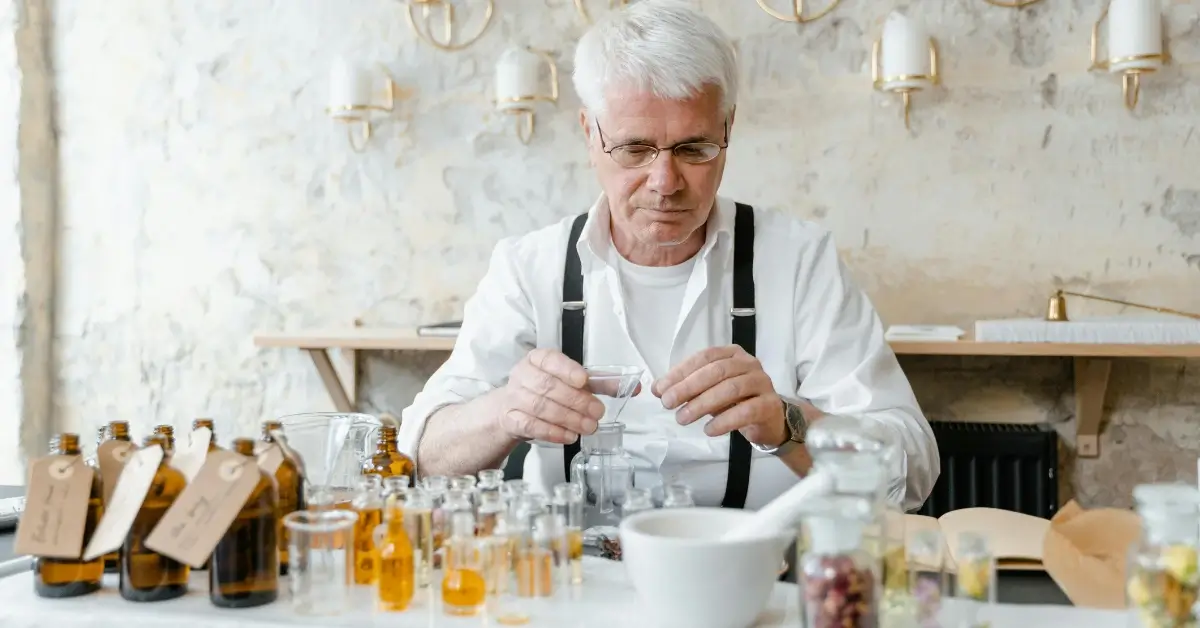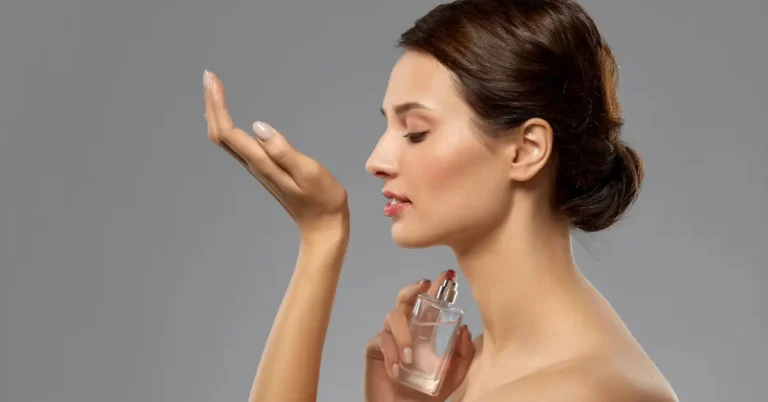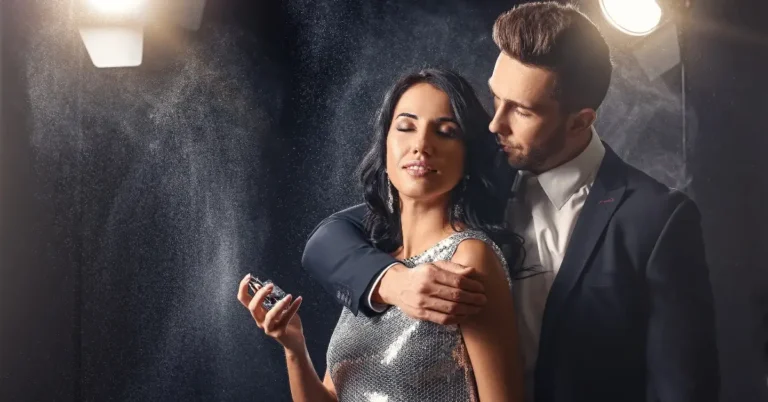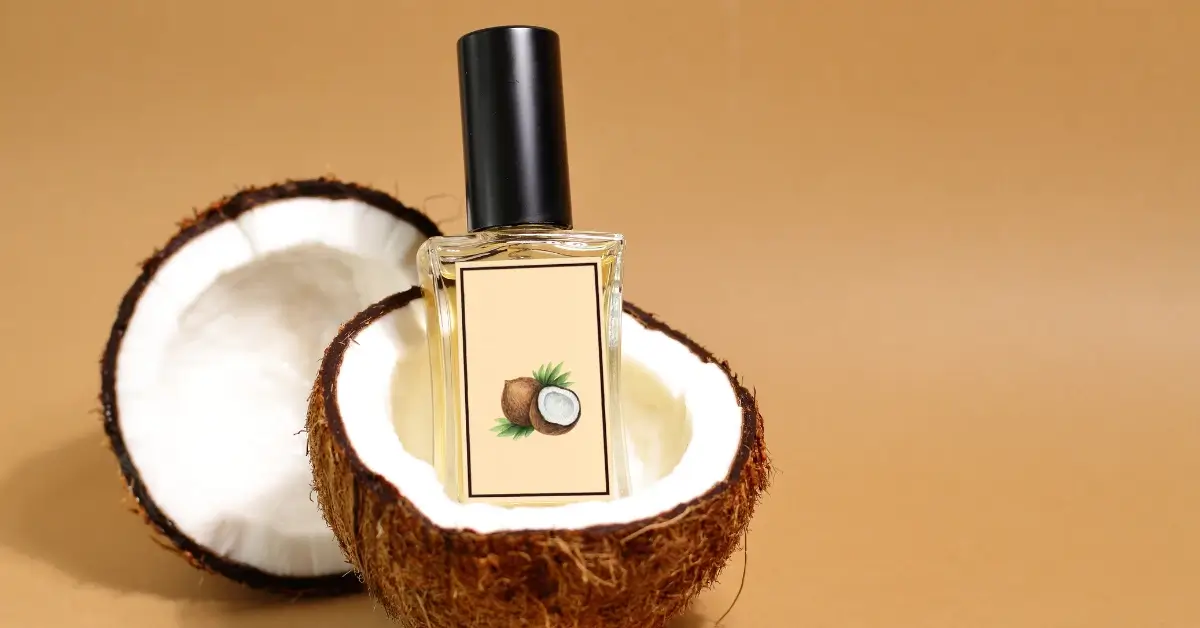Can’t resist that captivating aroma? Could it be your perfume? Which brand is it, by the way? These questions come up frequently. Have you ever been curious about how a perfume works? If so, that’s great! If not, don’t worry. I’ve put together some helpful tips to enhance your perfume’s impact. Excited to begin? If you are, let’s dive in!
How does perfume work? The science behind
Have you ever wondered how does perfume work? In this section, we explore the fascinating science behind scent and how perfumes are designed to stimulate our senses.
Perfumes consist of several key components, such as aromatic compounds, essential oils, and alcohol. These elements are carefully blended to create unique fragrances that captivate our senses. Perfume creation involves techniques like steam distillation and solvent extraction, which isolate and concentrate the aromatic compounds from natural sources like flowers, fruits, and spices.
In addition to natural ingredients, perfumers also utilize organic chemistry to synthesize synthetic fragrance ingredients in a laboratory setting. This enables them to create complex and long-lasting fragrances that may not be achievable with natural compounds alone. The resulting fragrances are carefully designed to engage our olfactory system, which is responsible for our sense of smell.
Our olfactory system is highly selective and sensitive. When we inhale a fragrance, it contains vibrating molecules that help electrons pass an energy gap. The specific vibrational energies of different molecules determine which olfactory pathways are activated, allowing us to identify and distinguish between various scents.
Scents are impactful and have the extraordinary ability to evoke emotions and memories. This strong connection between scent, emotion, and memory is exploited in various ways, from marketing campaigns to creating a unique ambiance in retail spaces. So, enough of the science, now we want to know how does perfume work with its ingredients!
Composition of Perfumes
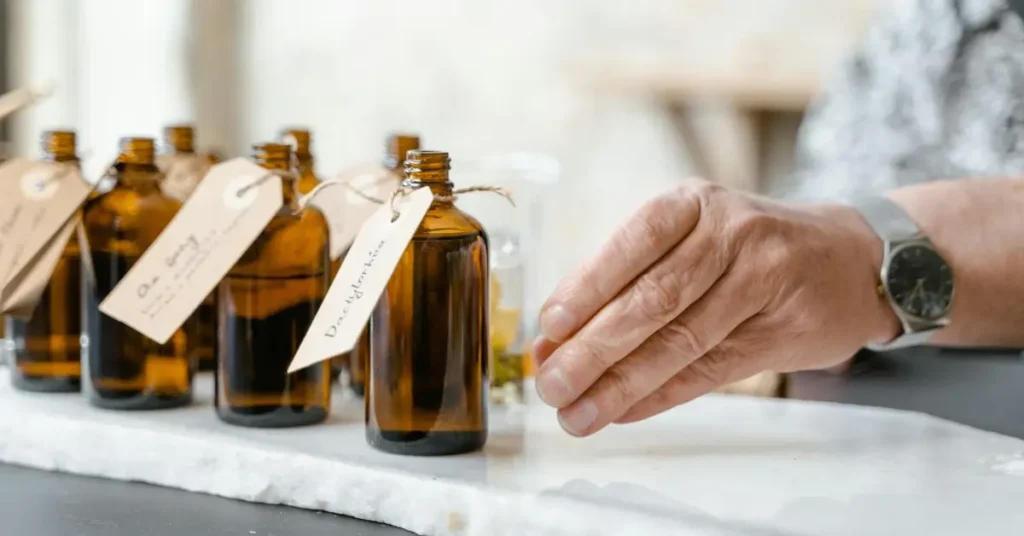
Ever wonder how does perfume work to provide exquisite fragrances all around us? The secret lies in the composition of perfumes. Here, we’ll dive into the different ingredients that create their beloved scents and lasting effects.
Essential Oils and Aromatics
Perfumes contain various essential oils and aromatics responsible for their distinct scents. These can be derived from natural sources like flowers, fruits, leaves, woods, and spices, as well as synthetic sources that are created to mimic these natural elements. Some common aromatic notes in perfumes include lavender, anise, and minty notes, as well as floral scents from spring flowers like lily of the valley, lilac, and honeysuckle.
Alcohol and Solvents
In order to enhance the lasting power and reach of these fragrances, perfumes incorporate alcohol and solvents. Most perfumes consist of 78 to 95 percent ethyl alcohol, which helps to distribute the scent and prolong its presence. Solvents mix with the essential oils to create a balanced and harmonious composition.
Fixatives and Enhancers
Lastly, fixatives and enhancers play an important role in maintaining the perfume’s aroma on the skin. Fixatives, derived from natural or synthetic origins, help the scent to stay ‘true’ and prevent it from becoming distorted. Enhancers, on the other hand, are often added to perfumes to improve their performance, such as making them last longer or carry further. Still wondering about how does perfume work? If not, then continue with our guide!
How to get the best out of perfume?
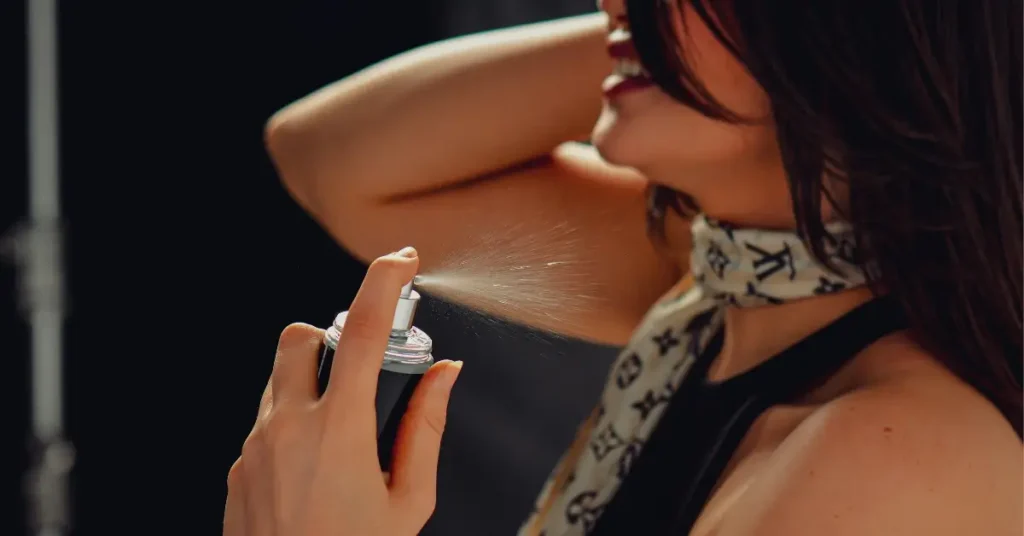
Have you ever wondered how does perfume work and how to make the most out of your favorite scent? In this section, we’ll explore the key aspects of perfume application, focusing on pulse points and sillage and longevity.
Pulse Points
When applying perfume, it’s important to target the pulse points on your body. These are areas where the blood vessels are closest to the skin’s surface, generating warmth that helps release the fragrance. Common pulse points include:
- Wrists
- Neck
- Behind the ears
- Elbows
- Ankles
When spritzing perfume on your wrists, avoid rubbing them together, as this can break down the fragrance molecules and alter the scent. Instead, let the perfume dry naturally on your skin.

Sillage and Longevity
Sillage refers to the trail of scent left behind as you move, while longevity denotes how long the fragrance lasts on your skin. To enhance both sillage and longevity, consider the following tips:
- Moisturize your skin: Fragrance binds better to well-moisturized skin. Apply your perfume after applying lotion or oil, or right after a shower when your skin is still slightly damp.
- Layer your scents: Use products from the same fragrance line, such as body lotion, shower gel, and perfume, to create a harmonious and long-lasting scent.
- Choose a stronger concentration: Perfumes with higher concentrations of fragrance oils, like eau de parfum or pure perfume, usually last longer than eau de toilette or cologne.
Want to know more about the technique of applying perfume? I wrote an entire guide, with which you’ll enhance your fragrance experience and leave a lasting impression wherever you go.
FAQ
Perfumes are a fascinating aspect of our daily lives, but have you ever wondered how does perfume work? Here are some frequently asked questions about the world of perfumes, with answers that are sure to make your experience even more enjoyable. So the question of how does perfume works is no longer a mystery!
How long does it take to smell a perfume?
The time it takes to smell a perfume is dependent on various factors, such as the chemical composition and the wearer’s skin. Typically, you can expect to smell the initial top notes within a few seconds of applying a perfume. These notes usually consist of light and fresh scents like citrus or lavender, which evaporate quickly due to their volatile nature. The heart or middle notes – these are often floral or spicy scents – become noticeable after about 10-30 minutes, giving the perfume its character. The base notes, which mostly consist of deep and heavy scents like musk and vanilla, emerge and linger for several hours after application. The science of scent plays a crucial role in determining how long a fragrance lasts on your skin.
Why can’t I smell my perfume after 10 minutes?
If you can’t smell your perfume after 10 minutes, it might be due to a phenomenon called olfactory fatigue or nose blindness. Our olfactory receptors, responsible for detecting smells, can become desensitized after prolonged exposure to the same scent. Your brain starts to filter out the familiar fragrance to focus on new scents, making it seem like your perfume has disappeared.
Is it true if you can´t smell your perfume it suits you?
There is a common belief that if you can’t smell your perfume, it must be well-suited to your body chemistry. This idea is more subjective than scientific, as the suitability of a fragrance depends on personal preferences and the compatibility of fragrance notes with your skin’s natural scent. Just because you experience olfactory fatigue and can’t smell your perfume doesn’t necessarily mean it’s the perfect match for you. Don’t hesitate to explore and experiment with different fragrances to find the one that truly complements your personality and aligns with your sense of style.
If you liked this blog post about the topic: how does perfume work, don’t forget to leave us a comment down below to tell us about your experience with it.

